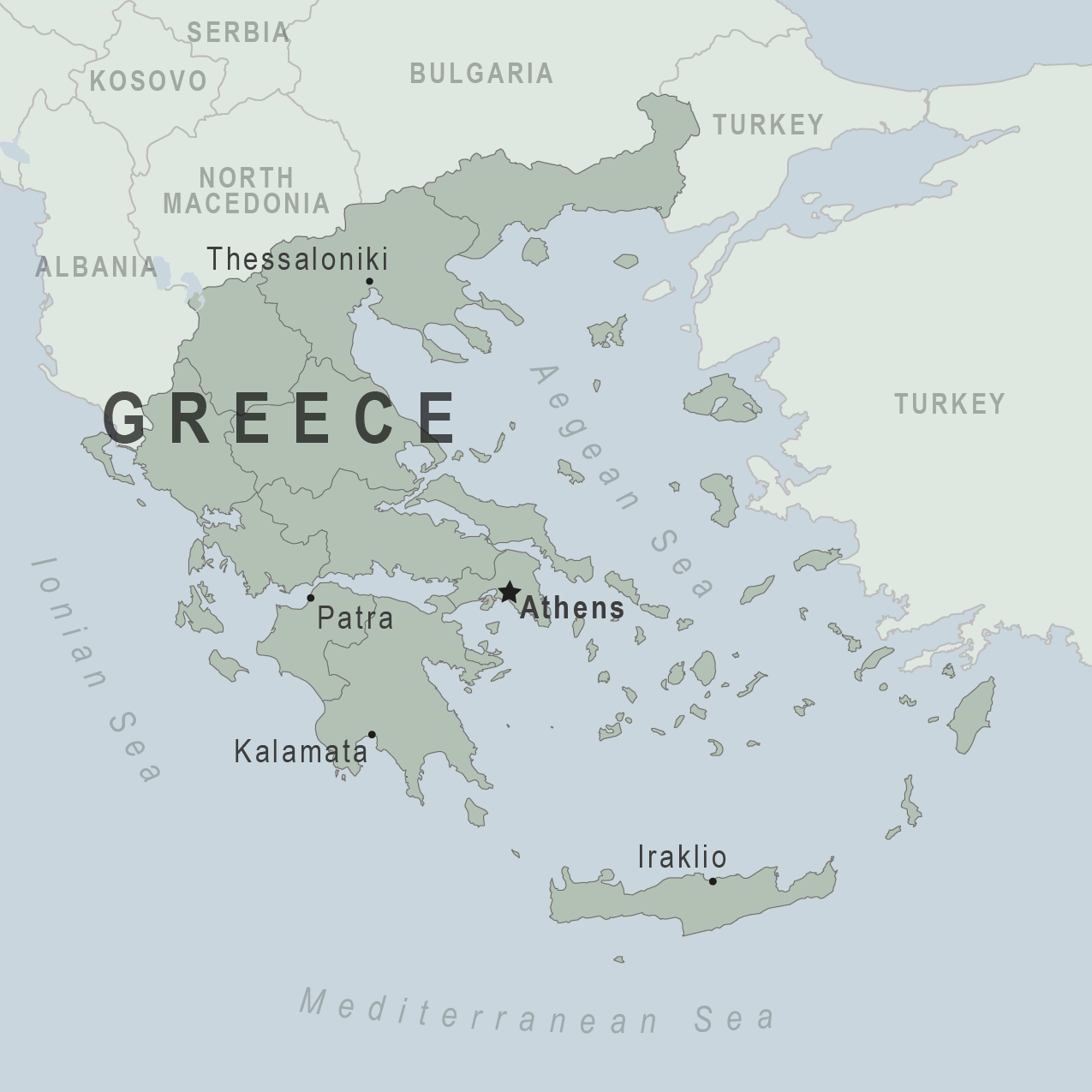Date: 20 Aug 2011
Source: CDC [edited]
and
Autochthonous _Plasmodium vivax_ malaria from Greece
----------------------------------------------------
The Centers for Disease Control and Prevention (CDC) has received a
report from the GeoSentinel Surveillance system of a confirmed case of
_Plasmodium vivax_ malaria in a person who traveled to Elos and Skala
in southern Greece around the last week of July (The patient was a
citizen from Romania and was admitted and diagnosed in Bucharest,
Romania].
The traveler had no history of travel to any malaria-endemic areas.
Greece has been malaria free since 1974; however according to Greek
health authorities, since June 2011, a total of 6 malaria cases have
been reported in persons with no history of travel to a
malaria-endemic area. All cases were confirmed to be _P vivax_ and
occurred in the southern region (Peloponnesus) of the country,
specifically in Laconia and Evoia districts.
The Hellenic CDC of Greece has responded by enhancing its surveillance
system and intensifying mosquito control in affected areas, raising
awareness among health care providers and hospitals about early
malaria diagnosis and treatment, and educating the public about
prevention of mosquito bites.
Because malaria risk in Greece is limited, and the country has
implemented control measures, at this time the CDC is not recommending
that travelers to Greece take an antimalarial drug. However, measures
to prevent mosquito bites should be taken, such as using insect
repellent when outdoors, and staying in an air-conditioned or
well-screened area, or sleeping under an insecticide treated bed net
during the peak biting period for mosquitoes (dusk and dawn).
This notice will be updated as new information becomes available.
See the CDC Malaria website for additional health information about
malaria including prevention of mosquito bites at
<http://www.cdc.gov/malaria>. For general health information for
travelers to all areas of the world, see the CDC Travelers' Health
website at <http://www.cdc.gov/travel>.
ProMed
See also: http://www.flutrackers.com/forum/sho...ghlight=greece
.
Source: CDC [edited]
and
Autochthonous _Plasmodium vivax_ malaria from Greece
----------------------------------------------------
The Centers for Disease Control and Prevention (CDC) has received a
report from the GeoSentinel Surveillance system of a confirmed case of
_Plasmodium vivax_ malaria in a person who traveled to Elos and Skala
in southern Greece around the last week of July (The patient was a
citizen from Romania and was admitted and diagnosed in Bucharest,
Romania].
The traveler had no history of travel to any malaria-endemic areas.
Greece has been malaria free since 1974; however according to Greek
health authorities, since June 2011, a total of 6 malaria cases have
been reported in persons with no history of travel to a
malaria-endemic area. All cases were confirmed to be _P vivax_ and
occurred in the southern region (Peloponnesus) of the country,
specifically in Laconia and Evoia districts.
The Hellenic CDC of Greece has responded by enhancing its surveillance
system and intensifying mosquito control in affected areas, raising
awareness among health care providers and hospitals about early
malaria diagnosis and treatment, and educating the public about
prevention of mosquito bites.
Because malaria risk in Greece is limited, and the country has
implemented control measures, at this time the CDC is not recommending
that travelers to Greece take an antimalarial drug. However, measures
to prevent mosquito bites should be taken, such as using insect
repellent when outdoors, and staying in an air-conditioned or
well-screened area, or sleeping under an insecticide treated bed net
during the peak biting period for mosquitoes (dusk and dawn).
This notice will be updated as new information becomes available.
See the CDC Malaria website for additional health information about
malaria including prevention of mosquito bites at
<http://www.cdc.gov/malaria>. For general health information for
travelers to all areas of the world, see the CDC Travelers' Health
website at <http://www.cdc.gov/travel>.
ProMed
Comment moderator ProMed:
[Laconia province is located the Peloponnese peninsula (HealthMap
location:
http://healthmap.org/r/19JI).
It is difficult to envisage introduction of malaria based on a single
case. The patient was a tourist from Romania who apparently had no
other exposure. If there is autochthonous malaria on the Peloponnese
peninsula, cases in the local population would be expected. - Mod.EP]
[Laconia province is located the Peloponnese peninsula (HealthMap
location:
http://healthmap.org/r/19JI).
It is difficult to envisage introduction of malaria based on a single
case. The patient was a tourist from Romania who apparently had no
other exposure. If there is autochthonous malaria on the Peloponnese
peninsula, cases in the local population would be expected. - Mod.EP]
.




Comment